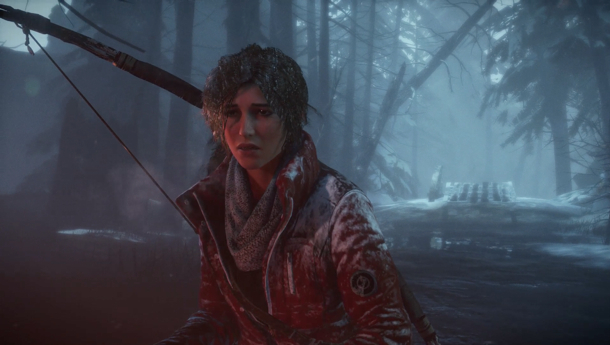A video released the other day for the upcoming The Last of Us DLC gave an encouraging glimpse into something that I have come to realize is sorely lacking from video games: female friendships. In the clip Riley (who I was excited to see is a person of color), who is alluded to be one of Ellie’s childhood friends, pulls a prank on Ellie by pretending to be Infected and biting Ellie’s neck while she sleeps. Ellie reacts violently at first but, upon recognizing Riley, remarks how long it’s been since they’ve seen each other and the two briefly catch up. Admittedly I haven’t actually around to playing The Last of Us yet, and we don’t yet have enough information to really know how the relationship between Ellie and Riley will unfold or will be treated, but it’s still left an impact on me.
As I was watching the video, the apparent connection the two have between them stood out to me and left me with a surprisingly lasting impression. The presence of close female friendships and the strength they had possibly gained or could gain through each other was apparent even in the small bits of dialogue and interaction we see in the video. While I have previously critiqued and based the “feminist friendly” and female empowerment level of cartoons due in part to the relationships the female characters have with each other, watching this trailer made me realize I had never really stopped to do the same with video games. In a feminist critique of games, I believe this is an important addition to our evaluation.
Realistic, genuine friendships or relationships between women and girls, both in real life and in the world of fiction, have strength and value beyond the normal benefits and conditions of friendship. As it appears will be the case for this newest DLC, each women or girl helps the other(s) to overcome difficulties, particularly those encountered in their environment. While in The Last of Us the threat facing Ellie and Riley might be a more literal one in the form of the Infected, this could be seen as a sort of metaphor or substitution for the often hostile, patriarchal world. Rather than just zombies, the girls share a kinship fueled by their femininity.
Because of the influence of the male-dominated social structure, women are encouraged to be rivals, enemies, or to center men in our lives, something that I find very apparent in video games. When there is more than one female character very rarely are they friends or even allies. Of course there’s often only one notable female character in the game at all. In this situation she is typically a comrade or member of a team that is otherwise entirely composed by men. By making female characters distant from each other or creating them with hostility towards each other, these characters aren’t able to draw power or refuge from their common female experiences or grow from each other’s individual perspectives.
So when I see a glimmer of hope of a relationship between two young girls portrayed in such a way that they are supportive and protective of each other, I get excited. Ultimately, however, the novelty of this relationship proves that it is, unfortunately, rare, further illuminating the void of proper representation in games for women.




